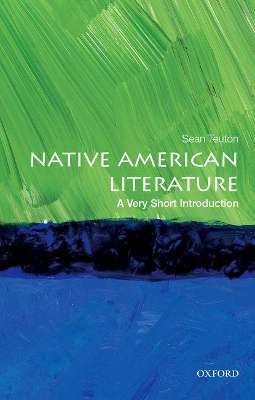In North America, the Indigenous literature we know today reaches back thousands of years to when the continent's original inhabitants first circled fires and shared tales of emergence and creation, journey and quest, heroism and trickery. Sean Teuton tells the story of Indigenous literature, from the time when oral narrative inspired the first Indigenous writers in English, through later writers' appropriation of genres to serve the creative and political needs of the times. In this lucid narrative he leads readers into the Indigenous worlds from which the literatures grows, where views about land and society and the role of humanity in the cosmos continue to enliven western understanding. In setting Indigenous literature in historical moments he elucidates its various purposes, from its ancient role in bringing rain or healing the body, to its later service in resisting European invasion and colonization, into its current place as a world literature that confronts dominance while it celebrates imagination and the resilience of Indigenous lives. Along the way readers encounter the diversity of Indigenous peoples who, owing to their differing lands, livelihoods, and customs, evolved literatures adapted to a nation's specific needs. While, in the nineteenth century, public lecture and journalism fortified eastern Indigenous writers against removal west, nearly a century later autobiography enabled western Indigenous authors to tell their side of the winning of the west. Throughout he treats Indigenous literature with such complexity. He describes the single-handed invention of a written Indigenous language, the first Indigenous language newspaper, and the literary occupation of Alcatraz Island. Returning to contemporary poetry, drama, and novel by authors such as D'Arcy McNickle, Leslie Silko, Sherman Alexie, Louise Erdrich, Craig Womack, Teuton demonstrates that, like Indigenous people, Indigenous literature survives because it adapts, honoring the past yet reaching for the future.
BROWSE
Native American Literature: A Very Short Introduction
Author: Sean Teuton
Paperback |
North American Indigenous literature reaches back thousands of years to when the continent’s original inhabitants first circled fires and shared tales. Sean Teuton tells its story, from when oral narrative first inspired Indigenous writers in English, through their later adaptations of the novel to serve creative and political needs. (176 pages)
€11.00
ISBN: 9780199944521 | Publisher: Oxford University Press Inc (USA) | Published: 2018
Category: Reading and writers, Very Short Introductions


